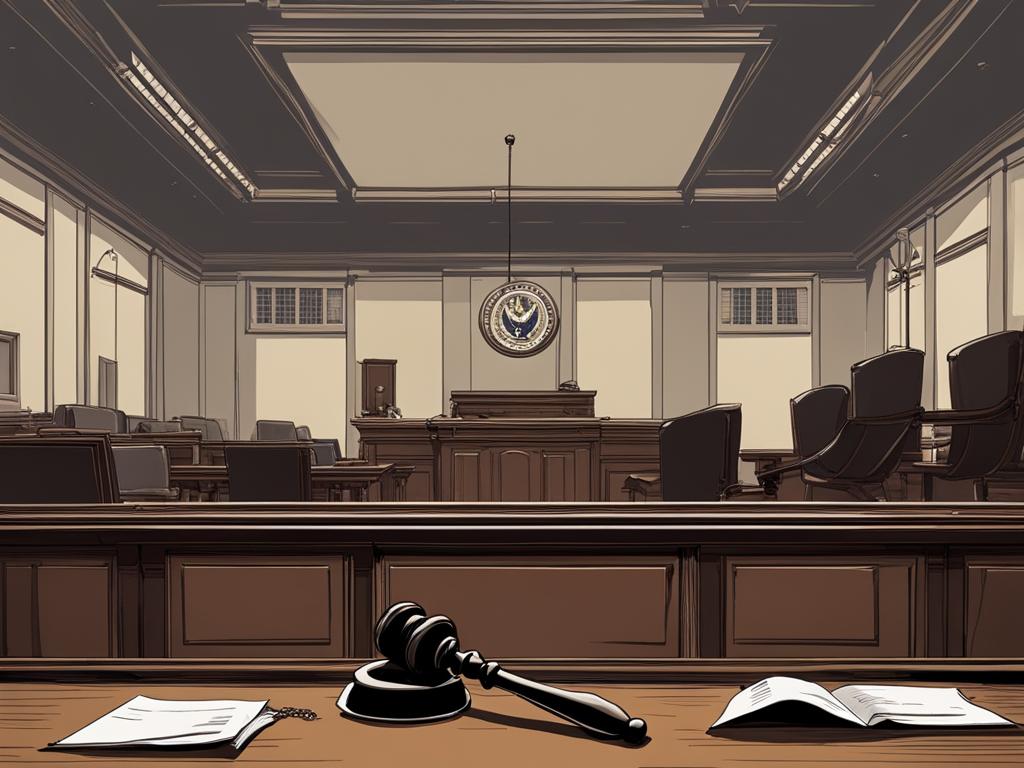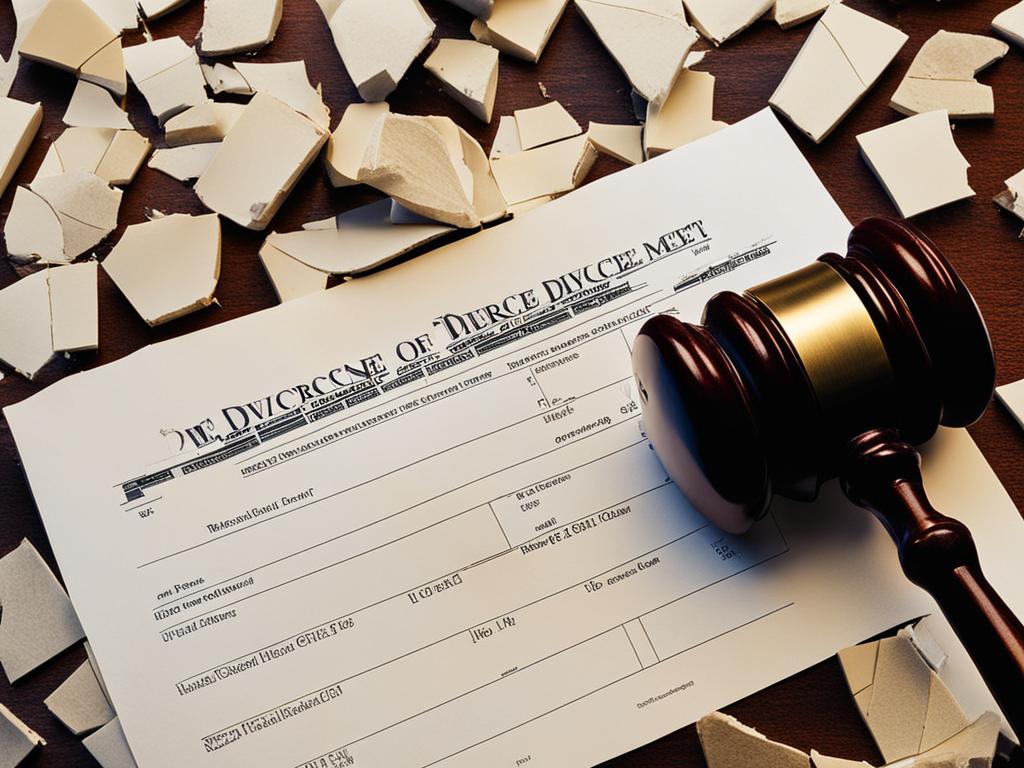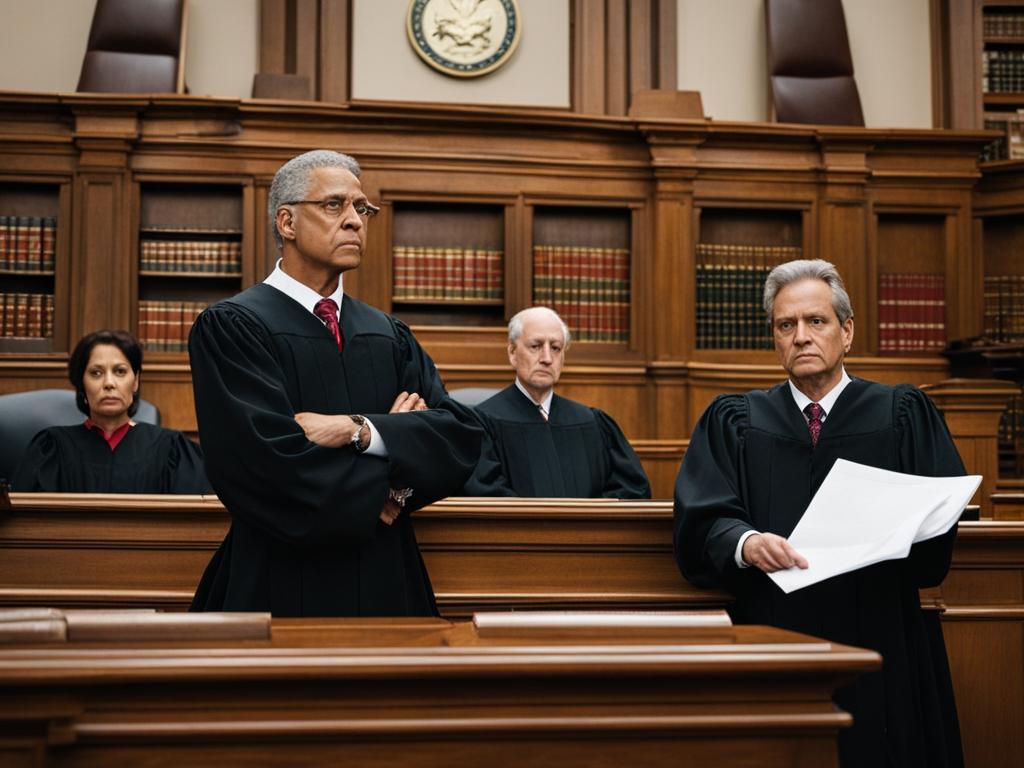Handling When Your Ex Does Not Comply with Your Divorce Decree
After a divorce, it is expected that both parties will adhere to the terms outlined in the divorce decree. However, there are cases where one ex-spouse fails to comply with the agreed-upon obligations. This can leave you feeling frustrated and unsure of how to proceed.
In this article, we will discuss the legal actions you can take when faced with non-compliance with a divorce decree. We will explore the potential consequences of not complying with the divorce decree and the steps you can take to ensure that your needs are met. By understanding the enforcement process and seeking appropriate legal assistance, you can navigate through this challenging situation.
Key Takeaways:
- When an ex-spouse does not comply with the divorce decree, legal actions can be taken to enforce it.
- Consequences of not complying with the divorce decree can include fines, loss of privileges, or even jail time.
- To address non-compliance, review the divorce decree, gather evidence, and consult with a divorce attorney.
- It is important to follow the appropriate legal procedures when seeking modifications to the divorce decree.
- Seeking legal advice and guidance can help protect your rights and ensure the court’s decisions are upheld.
What is a Divorce Decree and Its Importance?
A divorce decree is a court-issued document that provides a comprehensive outline of the decisions made during a divorce proceeding. It serves as a legally binding agreement between the divorcing spouses, detailing the terms and conditions of the divorce. The divorce decree covers various aspects of the divorce, including child custody arrangements, child support, spousal maintenance, division of assets and debts, and any other relevant matters.
The importance of a divorce decree cannot be overstated. It serves as a guide for both parties, outlining their respective responsibilities and obligations after the divorce is finalized. By adhering to the provisions of the decree, both ex-spouses can ensure that their rights are protected and that the decisions made by the court are upheld.
Furthermore, the divorce decree provides clarity and certainty regarding the terms of the divorce. It helps prevent future disputes and misunderstandings between the ex-spouses by establishing a legally binding agreement that governs their post-divorce relationship. In case of non-compliance or violations of the decree, the court has the authority to enforce its provisions and impose consequences on the non-compliant party.
The divorce decree is a legally binding agreement between the ex-spouses, and it is important to adhere to its provisions.
Therefore, it is crucial for divorcing couples to understand the contents of the divorce decree and its significance. Consulting with a divorce attorney can provide valuable guidance in navigating the complexities of the divorce process and ensuring that the decree accurately reflects the parties’ intentions and protects their rights.
What Happens When an Ex-Spouse Doesn’t Follow the Divorce Decree?
When an ex-spouse does not comply with the terms outlined in the divorce decree, it can have serious implications. The other spouse should take action to address the non-compliance and ensure that their needs are met. This may involve reviewing the decree to determine the specific violations, gathering evidence of the non-compliance, and filing a motion for contempt of court. The court has the power to enforce the divorce decree and may impose consequences on the non-compliant ex-spouse, such as fines or even jail time.
Non-compliance with a divorce decree can disrupt the intended outcomes of the divorce settlement and create significant hardships for the affected party. It is essential to address any violations promptly and seek appropriate legal remedies. By taking action when an ex-spouse does not follow the divorce decree, individuals can protect their rights and ensure that the court’s decisions are upheld. This process may involve consulting with a divorce attorney to understand the available legal actions and to navigate the complexities of the legal system.
It is important to note that the consequences for not complying with a divorce decree can vary depending on the specific circumstances and the jurisdiction in which the divorce was granted. While fines and jail time are potential penalties for non-compliance, the court may also implement other measures to enforce the decree. It is crucial for individuals dealing with non-compliance to consult with a divorce attorney who can guide them through the process and advocate for their best interests.

Gathering Evidence of Non-Compliance
When an ex-spouse fails to follow the terms of the divorce decree, it is essential to gather evidence of their non-compliance. This evidence can include written communications, financial records, and any other relevant documentation that supports the claim of violation. The more compelling evidence you have, the stronger your case will be when seeking legal action to enforce the divorce decree.
Filing a Motion for Contempt of Court
If you have evidence of non-compliance, the next step is to file a motion for contempt of court. This legal action asks the court to hold the non-compliant ex-spouse accountable for their actions and enforce the provisions of the divorce decree. It is crucial to consult with a divorce attorney to ensure that your motion is properly filed and that you navigate the legal process effectively.
Steps to Take When Your Ex Violates the Divorce Settlement
When your ex-spouse fails to follow the terms of the divorce settlement, it is crucial to take immediate action to address the situation. By following these steps, you can ensure that your rights are protected and that the court’s decisions are upheld.
1. Review the Settlement: Begin by thoroughly reviewing the divorce settlement to identify the specific provisions that have been violated. Take note of any deadlines, financial obligations, or custody arrangements that have not been honored.
2. Gather Evidence: It is essential to gather sufficient evidence of your ex-spouse’s non-compliance. Keep a record of any written communications, such as emails or text messages, that demonstrate their disregard for the settlement terms. Additionally, collect financial records or other relevant documentation that supports your claim.
3. File a Motion for Contempt of Court: After compiling the necessary evidence, consult with a divorce attorney to discuss filing a motion for contempt of court. This legal action asks the court to enforce the divorce decree against your ex-spouse and can result in penalties or consequences for their non-compliance. Your attorney will guide you through the process and help you present a strong case.
Gathering Evidence Example:
“I have repeatedly requested my ex-spouse to make the child support payments as stipulated in our divorce settlement. Despite multiple reminders and several months passing, they have failed to fulfill their financial obligations. Below is an email exchange between us, where I clearly state the payment due date and their response indicating their refusal to comply.”
By following these steps and seeking guidance from a divorce attorney, you can take the necessary legal actions to address your ex-spouse’s non-compliance with the divorce settlement. Remember, enforcing the settlement is crucial to protect your rights and ensure that the court’s decisions are upheld.
| Steps to Take When Your Ex Violates the Divorce Settlement |
|---|
| 1. Review the Settlement |
| 2. Gather Evidence |
| 3. File a Motion for Contempt of Court |
Legal Actions for Non-Compliance with Divorce Decree
When an ex-spouse fails to comply with the terms of the divorce decree, there are legal actions that can be taken to enforce the decree and protect your rights. One of the most common actions is filing a motion for contempt of court. This motion asks the court to hold the non-compliant ex-spouse in contempt and impose consequences for their failure to comply. The court has the power to enforce the divorce decree and may order the ex-spouse to comply with its terms or face penalties.
Enforcement of the divorce decree through a motion for contempt of court can be an effective way to address non-compliance. By filing this motion, you are asking the court to intervene and ensure that the divorce decree is enforced. The court may impose fines, require the non-compliant ex-spouse to take certain actions, or in extreme cases, even issue a warrant for their arrest.
It is important to consult with a divorce attorney to understand the specific legal actions available in your jurisdiction and to navigate the enforcement process effectively. An attorney can guide you through the necessary steps, help you gather evidence of non-compliance, and represent your interests in court. With their expertise, you can ensure that your rights are protected and that the court’s decisions are upheld.
Table: Possible Consequences for Non-Compliance with Divorce Decree
| Consequences | Description |
|---|---|
| Fines | The court may impose monetary penalties on the non-compliant ex-spouse as a consequence for their failure to comply with the divorce decree. |
| Changes to Custody or Support | If the non-compliance involves matters such as child custody or child support, the court may modify these arrangements to better protect the well-being of the children involved. |
| Compensatory Time | If one parent has consistently denied the other parent their court-ordered time with the children, the court may grant compensatory time to make up for the missed visitation. |
| Loss of Privileges | In certain cases, the court may impose consequences such as suspending a driver’s license or professional license as a way to enforce compliance with the divorce decree. |
| Contempt of Court | If the non-compliance is severe or persistent, the court may find the non-compliant ex-spouse in contempt, which can result in increased consequences such as fines or jail time. |
Consequences of Not Complying with Divorce Decree
Not complying with a divorce decree can have serious consequences. When an ex-spouse fails to adhere to the terms and conditions outlined in the divorce decree, the court has the power to impose penalties to ensure compliance. These penalties can vary depending on the specific circumstances of the case and the laws of the jurisdiction.
The consequences of not complying with a divorce decree may include fines, loss of certain privileges, or even jail time. The court may impose financial penalties on the non-compliant ex-spouse, requiring them to pay a specified amount for each violation of the decree. In some cases, the court may suspend the non-compliant ex-spouse’s driver’s license or professional license until they come into compliance. In more severe cases of non-compliance, the court may even order jail time as a consequence.

It is important to understand that the consequences of non-compliance are intended to enforce the divorce decree and ensure that both parties fulfill their obligations. The court takes violations of the decree seriously and aims to protect the interests of the party who is being harmed by the non-compliance.
If you find yourself in a situation where your ex-spouse is not complying with the divorce decree, it is important to consult with a divorce attorney to understand the specific consequences that may apply in your jurisdiction. An experienced attorney can guide you through the legal process, help you gather evidence of non-compliance, and advocate for your rights in court if necessary.
Enforcing a Divorce Decree: Important Considerations
When it comes to enforcing a divorce decree, there are several important considerations to keep in mind. Whether your ex-spouse is refusing to comply with the terms of the decree or you suspect they may not follow through, taking the right steps is crucial in protecting your rights and ensuring that the court’s decisions are upheld. Here are some key things to consider when enforcing a divorce decree:
- Review the Decree: Start by thoroughly reviewing the divorce decree to understand all the provisions and obligations outlined within it. This will help you identify specific areas where your ex-spouse may be non-compliant.
- Gather Evidence: It’s essential to gather sufficient evidence of non-compliance to support your case. This evidence can include any relevant documentation, such as emails, text messages, financial records, or witness statements.
- Hiring a Divorce Attorney: Enforcing a divorce decree can be a complex legal process, and having the guidance of a qualified divorce attorney can be invaluable. An attorney will ensure that you follow the appropriate legal procedures, represent your interests in court, and help you build a strong case for enforcement.
Remember, enforcing a divorce decree is not something you have to navigate alone. An experienced attorney will guide you through the process, advising you on the best course of action and advocating for your rights. With their help, you can take the necessary legal steps to enforce the decree and protect your interests.
Enforcing a divorce decree can be a challenging and emotionally charged process, but by understanding the important considerations and seeking legal assistance, you can increase your chances of success. Remember to review the decree, gather evidence, and consult with a divorce attorney to effectively enforce the court’s decisions. Taking these steps will help ensure that your rights are protected and that you receive the benefits and support you are entitled to under the divorce decree.

Seeking Modifications to the Divorce Decree
In certain situations, it may be necessary to seek modifications to the divorce decree. This can occur when there has been a significant change in circumstances since the divorce was finalized. Modifications may be needed for matters such as child custody, child support, or spousal maintenance.
To seek modifications, it is important to provide evidence of the changed circumstances and follow the appropriate legal procedures. Consulting with a divorce attorney can help you navigate the process of seeking modifications and ensure that your rights are protected.
When seeking modifications to a divorce decree, it is crucial to demonstrate a change in circumstances that warrants a modification. This could include a substantial increase or decrease in income, a relocation that affects parenting time, or a change in the child’s needs or medical condition. By presenting compelling evidence of these changed circumstances, you can make a strong case for the modifications you are seeking.
Modifying the Divorce Decree: Legal Process
Modifying a divorce decree typically involves filing a petition with the court that issued the original decree. This petition should outline the specific changes you are requesting and provide supporting documentation to justify those changes. It is important to follow the legal process in your jurisdiction and adhere to any deadlines or requirements set by the court.
| Step | Action |
|---|---|
| 1 | Gather evidence of the changed circumstances. |
| 2 | Consult with a divorce attorney to understand the legal requirements for modifying the decree. |
| 3 | File a petition with the court, detailing the requested modifications. |
| 4 | Provide supporting documentation to justify the modifications. |
| 5 | Attend any required hearings or proceedings. |
| 6 | Obtain a revised decree if the modifications are approved by the court. |
It is essential to consult with a divorce attorney throughout the process of seeking modifications to the divorce decree. An attorney can guide you through the legal requirements, help you gather the necessary evidence, and present a persuasive case to the court. They can also advocate for your rights and represent your interests during any hearings or proceedings.
Remember that modifying a divorce decree can be a complex legal process, and it is important to navigate it correctly to protect your rights and ensure that the modifications are enforceable. Consult with a knowledgeable divorce attorney to understand the specific requirements and procedures in your jurisdiction and to receive tailored guidance for your unique situation.
Conclusion
Dealing with an ex-spouse who does not comply with the divorce decree can be challenging, but it is important to take the necessary steps to enforce the decree and protect your rights. When faced with non-compliance, it is crucial to review the divorce decree and identify the specific violations. Gathering evidence of the non-compliance, such as written communications or financial records, can strengthen your case when seeking legal actions.
Filing a motion for contempt of court is one of the legal actions available to address non-compliance with the divorce decree. This motion asks the court to enforce the decree against your ex-spouse and potentially impose consequences for their failures to comply. Consult with a divorce attorney to ensure that you navigate the legal complexities and have the necessary support throughout this process.
Remember, the divorce decree is a legally binding document, and the court has the power to enforce its provisions. By taking the appropriate legal actions, you can ensure that your needs are met and the court’s decisions are upheld. Handling non-compliance with the divorce decree requires diligence and perseverance, but by seeking professional advice and following the proper legal procedures, you can protect your rights and achieve the desired outcomes.
FAQ
What is a divorce decree?
A divorce decree is a court-issued document that details the decisions made during a divorce proceeding. It outlines the terms and conditions of the divorce, including matters such as child custody, child support, alimony, and division of assets and debts.
What happens when an ex-spouse doesn’t follow the divorce decree?
When an ex-spouse fails to comply with the terms outlined in the divorce decree, it is important to take action. This may involve reviewing the decree, gathering evidence of non-compliance, and filing a motion for contempt of court.
What are the consequences of not complying with a divorce decree?
Not complying with a divorce decree can have serious consequences. The court has the power to impose penalties on the non-compliant ex-spouse, such as fines, loss of certain privileges, or even jail time.
What steps can I take when my ex violates the divorce settlement?
When your ex violates the divorce settlement, you should review the settlement to identify the specific provisions that have been violated. Then, gather evidence of the non-compliance and file a motion for contempt of court.
What legal actions can be taken for non-compliance with a divorce decree?
One legal action that can be taken for non-compliance with a divorce decree is filing a motion for contempt of court. This asks the court to hold the non-compliant ex-spouse in contempt and enforce the decree.
What are the considerations for enforcing a divorce decree?
When enforcing a divorce decree, it is important to gather sufficient evidence of non-compliance and understand the legal process. Consulting with a divorce attorney can provide valuable guidance and support throughout this process.
Can I seek modifications to the divorce decree?
Yes, in certain situations, it may be necessary to seek modifications to the divorce decree. This is typically done when there has been a significant change in circumstances since the divorce was finalized.
How can I handle non-compliance with a divorce decree?
Dealing with an ex-spouse who does not comply with the divorce decree can be challenging, but it is important to take the necessary steps to enforce the decree and protect your rights. This may involve reviewing the decree, gathering evidence, and consulting with a divorce attorney.

